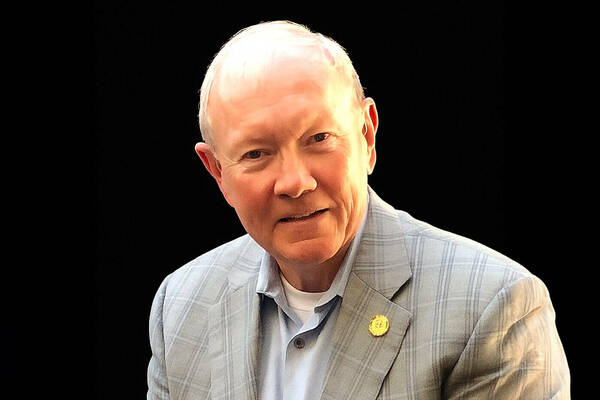Shipping policies designed to boost online spending instead drive consumers into stores

Online shopping has experienced massive growth over the past decade, leading to extensive research into how businesses merge their physical store presence with online platforms.
A new study from the University of Notre Dame reveals surprising results when shipping policies are adjusted from tiered to flat-rate models.
Previous studies have ignored the nuances of e-commerce shipping fee policies, which serve as a critical strategic tool for retailers. Traditionally, companies including AutoZone, World Market and BatteriesPlus have favored tiered shipping fees determined by order cost. More modern policies at retailers like BoxLunch, White House Black Market and Saks Fifth Avenue have shifted to flat fees designed to encourage higher-dollar online orders, as consumers may feel the fees are “wasted” unless they make a larger purchase.
Rather than boosting e-commerce, the change drives many online shoppers into the stores, leading to an overall increase in sales from both channels, according to the lead author Vamsi Kanuri, the Viola D. Hank Associate Professor of Marketing at Notre Dame’s Mendoza College of Business. Kanuri’s findings, “Disentangling the Customer-Level, Cross-Channel Effects of Large-Order-Advantaged Online Shipping Policies” were recently published in MIS Quarterly.
Kanuri, along with Andrew Crecelius from Iowa State University and Subodha Kumar from Temple University, analyzed 16 months of transaction data from more than 21,000 customers of a major luxury department store operating online and with physical stores in five states. Switching from a tiered online shipping fee where bigger orders cost more to ship, to a flat-rate that costs the same no matter how much is purchased, they tracked how the new policy impacted online and in-store purchasing behavior, specifically focusing on order frequency, size and item types.
Under the retailer’s tiered system, a $10 order included no fee, a $30 order incurred a $7 fee and a $100 order had a $20 fee. With the shift to a flat-rate shipping policy, customers paid $7 regardless of order size.
‘We expected this would boost online shopping,” Kanuri said. “But surprisingly, in-store sales increased by 23 percent among the shoppers who purchased only through the online channel before the policy change.”
Specifically, shoppers reduced their average monthly online spending by $242,000 (11 percent decrease), while previously online-only shoppers spent a whopping $975,000 (23 percent increase) in stores. They pooled their online orders until they reached the threshold, resulting in fewer but larger online orders, then visited physical stores in between for smaller items.
According to the U.S. Census Bureau, Amazon has dominated the $900 billion online market, while rivals with physical stores like Macy’s rush to boost their e-commerce sales and others including J. Crew, Neiman Marcus, Pier 1 Imports, Revlon and Sears faced bankruptcies and store closures.
“For these legacy retailers trying to stay competitive with Amazon, especially those with both online and physical stores, this study is big,” Kanuri said. “Our work shows that online shipping policies can shape how and where people shop. A flat-rate shipping fee might not juice up online orders as intended, but it can be a clever way to get customers to step into a physical store and boost sales for both, putting ‘e-tailers’ at a slight disadvantage.”
Kanuri advises managers to make better use of their physical locations by assessing how their shipping strategies affect in-store behavior as well as online sales.
Contact: Vamsi Kanuri, 574-631-2399, vkanuri@nd.edu
Latest ND NewsWire
- Eck Institute investigator to strengthen postpartum care for Indiana mothersYenupini Joyce Adams, associate professor of the practice and maternal health lead for the Eck Institute for Global Health at the University of Notre Dame, is partnering with Beacon Health System to pilot a new, first-of-its-kind postpartum care model in the South Bend-Elkhart community.
- Gen. Martin Dempsey to speak at Notre Dame Forum event on ‘Hope, Global Stability and the Role of the United States’Gen. Martin Dempsey, the retired 18th chairman of the Joint Chiefs of Staff, will join University President Rev. Robert A. Dowd, C.S.C., for a fireside chat at 4 p.m. Friday (Oct. 10), as part of the 2025-26 Notre Dame Forum. The discussion, titled “Hope, Global Stability and the Role of the United States,” is part of the exploration of this year’s Notre Dame Forum theme, “Cultivating Hope.” It will take place in Rooms 215/216 of McKenna Hall and will also be livestreamed. The event is free and open to the public.
- University of Notre Dame joins the Global Coalition of Ukrainian StudiesThe University of Notre Dame has joined the Global Coalition of Ukrainian Studies after signing a memorandum of cooperation, formalized Sept. 24, at the Ukrainian Institute of America in New York City. Notre Dame joined four other American institutions that were also publicly welcomed to the coalition at this event: Arizona State University, Columbia University, Manor College and the Shevchenko Scientific Society.
- One year later, Inauguration Build a ‘dream come true’ for Habitat familiesOne year later, work on Inauguration Build 2024 is complete, offering shelter and so much more to five local families.
- Alumni Association and YoungND honor 2025 Domer DozenThe Notre Dame Alumni Association announced its 2025 Domer Dozen cohort, honoring 12 graduates ages 32 and younger for excellence in their contributions in learning, service, faith and work — the core pillars of the association’s mission.
- Faculty receive prestigious early career awards from National Science FoundationDuring the 2024-25 academic year, four researchers in the University of Notre Dame’s Colleges of Engineering and Science received early-career awards from the National Science Foundation.













